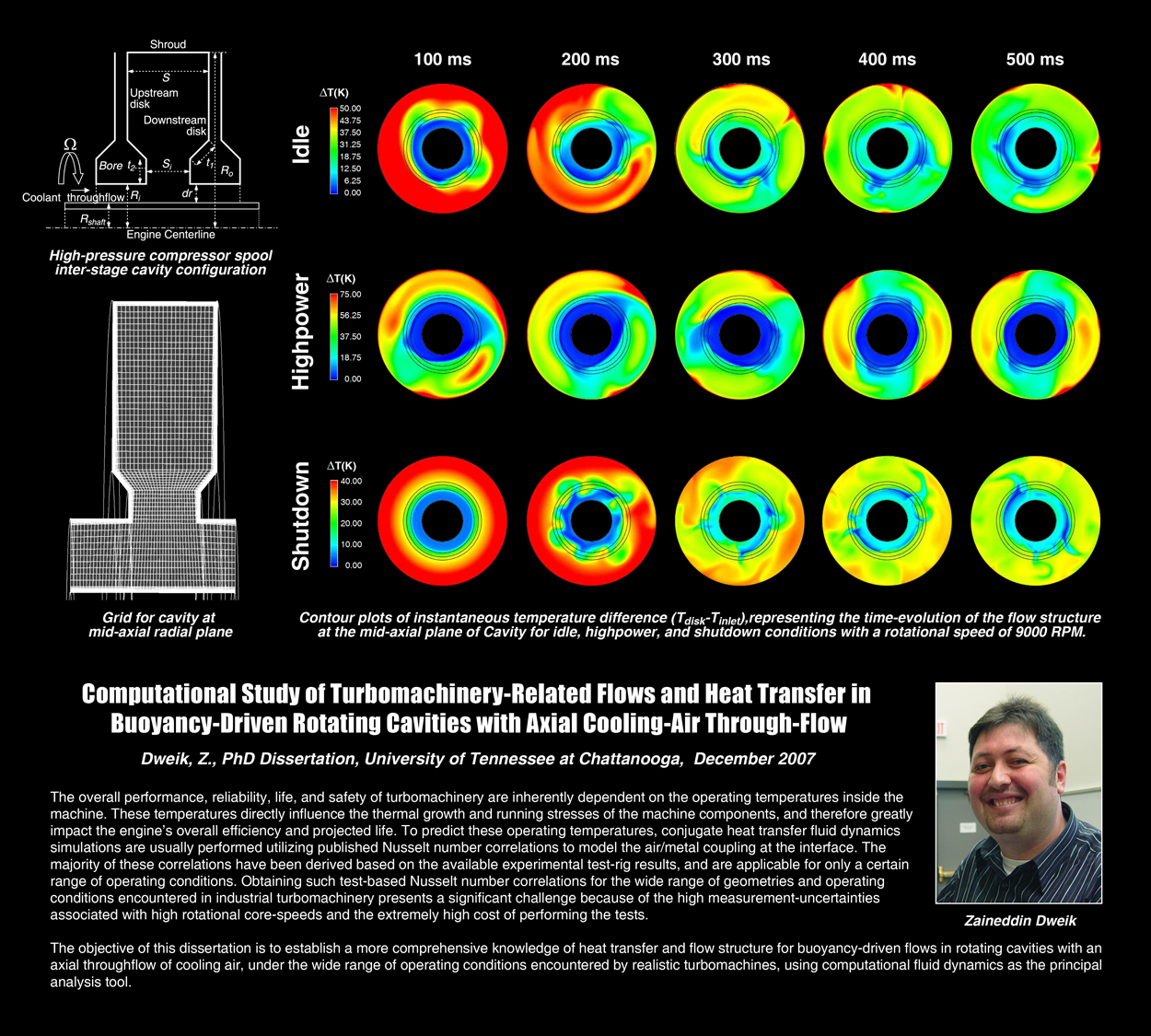Zaineddin Dweik
Computational Study of Turbomachinery-Related Flows and Heat Transfer in Buoyancy-Driven Rotating Cavities with Axial Cooling-Air Through-Flow
A Dissertation Presented for the Doctor of Philosophy in Computational Engineering, The University of Tennessee at Chattanooga
Zaineddin Dweik, December 2007
Abstract:
The overall performance, reliability, life, and safety of turbomachinery are inherently dependent on the operating temperatures inside the machine. These temperatures directly influence the thermal growth and running stresses of the machine components, and therefore greatly impact the engine’s overall efficiency and projected life. To predict these operating temperatures, conjugate heat transfer fluid dynamics simulations are usually performed utilizing published Nusselt number correlations to model the air/metal coupling at the interface. The majority of these correlations have been derived based on the available experimental test-rig results, and are applicable for only a certain range of operating conditions. Obtaining such test-based Nusselt number correlations for the wide range of geometries and operating conditions encountered in industrial turbomachinery presents a significant challenge because of the high measurement-uncertainties associated with high rotational core-speeds and the extremely high cost of performing the tests.
The objective of this dissertation is to establish a more comprehensive knowledge of heat transfer and flow structure for buoyancy-driven flows in rotating cavities with an axial throughflow of cooling air, under the wide range of operating conditions encountered by realistic turbomachines, using computational fluid dynamics as the principal analysis tool.
